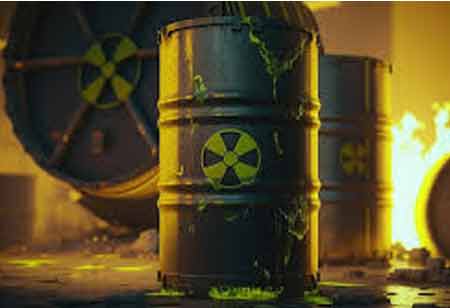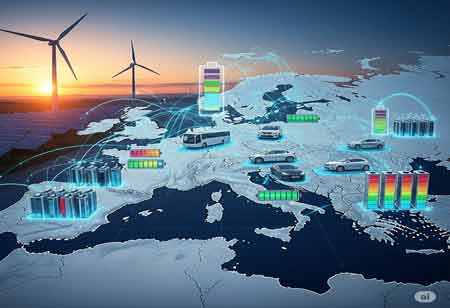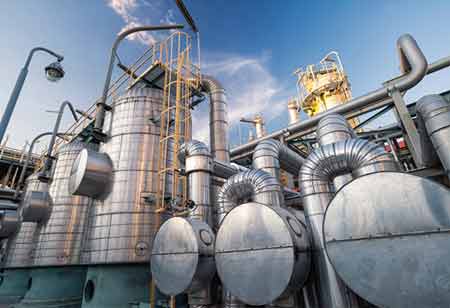CLOSE
Specials
I agree We use cookies on this website to enhance your user experience. By clicking any link on this page you are giving your consent for us to set cookies. More info
Be first to read the latest tech news, Industry Leader's Insights, and CIO interviews of medium and large enterprises exclusively from Energy Tech Review
Thank you for Subscribing
The Path Forward: Nuclear Energy in a Sustainable World
The future of nuclear power in APAC is complex, involving safety, cost, waste disposal, and public acceptance.

By
Energy Tech Review | Monday, October 27, 2025
Stay ahead of the industry with exclusive feature stories on the top companies, expert insights and the latest news delivered straight to your inbox. Subscribe today.
The future of nuclear power in APAC is complex, involving safety, cost, waste disposal, and public acceptance. Technological advancements and international cooperation are crucial for a sustainable energy future.
FREMONT CA: It is technology associated with generating sustainable energy. Nuclear power is promising but controversial, most unsure about its future in most dimensions of APAC due to the continuous debate on whether it will likely be sustainable in the long term.
Proponents of nuclear power emphasize its numerous advantages in the transition to a low-carbon economy. One of its key benefits is its ability to produce electricity with virtually no greenhouse gas emissions, making it an essential tool in combating climate change. Additionally, nuclear power provides baseload electricity, offering a continuous, reliable energy source that is not subject to the intermittent nature of renewable sources like solar and wind. With its high energy density, nuclear fuel can generate large amounts of electricity from relatively small quantities of fuel. Furthermore, nuclear power plants can drive economic growth by creating jobs, particularly in regions where they are based.
Technological advancements in the nuclear energy sector are driven by innovations such as Small Modular Reactors (SMRs) and fourth-generation reactors. SMRs offer potential benefits, including improved safety, reduced construction costs, and faster deployment timelines than traditional reactors. The development promises fourth-generation reactors enhanced safety, greater efficiency, and reduced waste. However, economic challenges persist, particularly with rising construction costs for nuclear power plants, which have significantly impacted the feasibility of new projects. Additionally, the growing competitiveness of renewable energy sources, such as solar and wind, drives down costs and makes them more attractive for investment and grid integration.
Public perception of nuclear energy varies widely across the region and is influenced by historical accidents, ongoing safety concerns, and the availability of alternative energy sources. Political will, shaped by government policies and regulatory frameworks, plays a crucial role in determining the future of nuclear power in different countries. Atomic energy also offers strategic value in terms of energy security, helping to reduce dependence on fossil fuel imports and contributing to greater energy independence. However, the geopolitical implications of nuclear technology, particularly concerning atomic proliferation, remain a key concern.
Environmental considerations associated with nuclear power include the safe disposal of radioactive waste, which continues to pose significant challenges, and the substantial water usage required for cooling atomic plants. This raises concerns about water scarcity and the broader environmental impact of nuclear power generation.
However, the future of nuclear power in APAC is complex and varies across countries. Nations like France remain committed to nuclear energy, investing in new reactors, while others like Germany have decided to phase out nuclear power entirely. Several factors will influence atomic power's role in the region going forward. Technological advancements, such as developing small modular reactors (SMRs), may address safety and cost concerns associated with traditional nuclear power plants. Public opinion on nuclear energy is divided, and government policies must reflect this balance. Economic considerations—particularly the cost of nuclear power relative to other electricity sources—will shape its future viability. In the long run, international cooperation will be crucial to managing nuclear waste disposal and ensuring the safe application of nuclear technology.
Nuclear power holds the potential to contribute to a sustainable energy future, though it faces substantial challenges. Its role in APAC’s energy landscape will depend on various factors, including technological advancements, public perception, economic considerations, and international collaboration. The debate surrounding nuclear power will persist as the global community shifts toward a low-carbon economy.

Copyright © 2025 Energy Tech Review. All rights reserved






